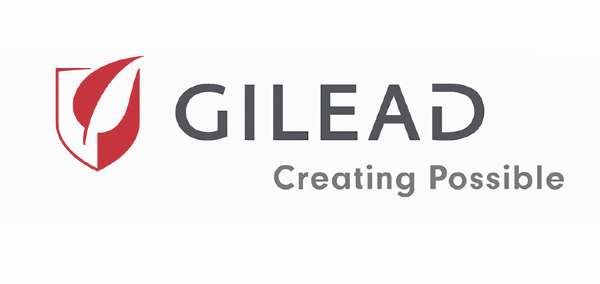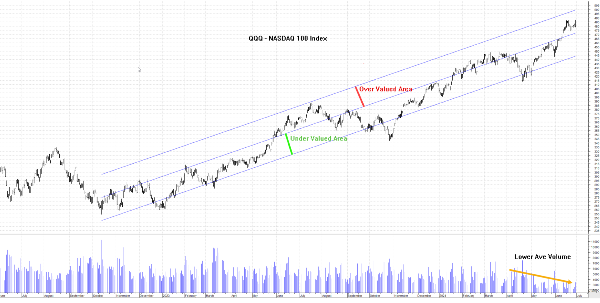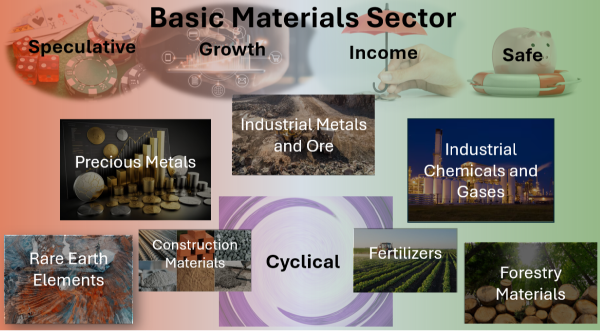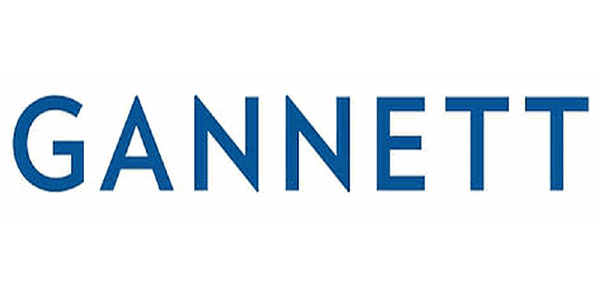What are advanced material companies?
Advanced material companies focus on the development and production of complex and technology driven materials. These materials, as opposed to traditional materials, help to drive technical innovation and improve the cost and efficiency of existing products. They have an impact across many industries, as they can improve the performance of existing goods and materials as well as create new ones.
Three Examples of Advanced Material Companies You Can Buy
Interestingly enough, some of these companies are not categorized as basic material stocks but can range from technology stocks to industrial stocks.

Materion Corporation (MTRN)
Materion is a premier advanced materials solutions provider enabling customers to improve the world’s technology products. Materion Corporation produces advanced engineered materials used in various sectors including semiconductor, industrial, aerospace and defense, automotive, energy, and consumer electronics worldwide. The company was formerly known as Brush Engineered Materials Inc. Materion operates in the Basic Materials sector, specifically in the Other Industrial Metals & Mining industry.

Hexcel Corporation (HXL) is a leading producer of carbon fiber reinforcements and resin systems and is recognized as the world leader in honeycomb manufacturing for the commercial aerospace industry. The company operates in the Industrials sector, specifically in the Aerospace & Defense industry.
Hexcel Corporation develops carbon fibers, structural reinforcements, honeycomb structures, resins, and composite materials for use in commercial aerospace, space and defense, and industrial applications. It operates in two segments, Composite Materials and Engineered Products.
Albemarle Corporation (ALB)
Albemarle Corporation (ALB) is a leading global developer, manufacturer, and marketer of engineered specialty chemicals. The company operates through three segments: Energy Storage, Specialties, and Ketjen which focuses on clean energy solutions.
The Energy Storage segment offers lithium compounds, including lithium carbonate, lithium hydroxide, and lithium chloride. This segment also provides technical services for the handling and use of reactive lithium products, and lithium-containing by-products recycling services.
The Specialties segment provides bromine-based specialty chemicals, including elemental bromine, alkyl and inorganic bromides, brominated powdered activated carbon, and other bromine fine chemicals. It also offers lithium specialties, such as butyllithium and lithium aluminum hydride.
The Ketjen segment offers clean fuels technologies (CFT), which is composed of hydroprocessing catalysts (HPC) together with isomerization and akylation catalysts. It also includes fluidized catalytic cracking (FCC) catalysts and additives, and performance catalyst solutions (PCS), which is composed of organometallics and curatives.
What are some applications of advanced materials?
Advanced materials have a wide range of applications across various industries due to their unique properties. Here are some examples:

Image Source: Steven
Advanced materials are used in the production of integrated circuits, which are a set of electronic circuits on one small flat piece of semiconductor material.
Here are some stocks that are creating advanced materials for integrated circuits:
- Amkor Technology (AMKR) provides a wide variety of packaging and test services. The company is a leader in 2.5D packaging, a technology that integrates multiple circuits in one package. It supports AI Packaging needs and is expected to grow steadily through this decade and into the 2030s.
- Applied Materials (AMAT) creates manufacturing equipment and software solutions for the integrated circuit industry. With demand for chip manufacturing equipment increasing due to applications that support AI, chip manufacturing is projected to more than double by 2030. The company’s focus on less advanced integrated circuits has allowed it to withstand volatility in the technology sector.
- Broadcom (AVGO) develops infrastructure for chips and software solutions. Some of its integrated circuits can be used for AI applications. However, only 20% of its revenue currently comes from AI technologies. The company expects to increase its revenue from AI over time, but it has a solid base of operations outside of what might be considered a volatile AI sector.
These companies are at the forefront of creating advanced materials for integrated circuits, contributing to the growth and development of the semiconductor industry.

Magnetic Data Storage
Advanced materials are also used in magnetic data storage devices, which store data in a magnetized medium. These devices include Hard Disk Drives (HDDs) which are the most common magnetic storage devices. They consist of spinning disks (platters) coated with magnetic material. Data is written and read by aligning the magnetic orientations of particles on the platters. There are also Magnetic Tapes which are often used for backup and archival purposes and magnetic stripe cards found on credit cards.
Magnetic storage is known for its large storage capacities and cost-effectiveness, making it a staple in both personal and enterprise computing environments. Advanced materials play a crucial role in enhancing the performance and capabilities of magnetic data storage devices.
- 3D Metamaterials, including tiny magnetic bubbles, are being explored for their potential to revolutionize data storage by enabling higher data densities and novel storage mechanisms.
- Antiferromagnetic Alloys exhibit unique electron spin properties and are being studied for their potential in creating more efficient and reliable data storage and memory devices.
- Nanoengineered Composite Magnetic Materials leverage quantum mechanical processes to improve the performance of hard disk drives and magnetic tape technologies.
- Magnetic Multilayer Structures combine different materials and layer thicknesses, allowing researchers to control the internal spin structure of domain walls, which is crucial for encoding data.
There are multiple technology companies working on advanced materials for magnetic data storage. These include several publicly traded companies that are actively researching and developing advanced materials for magnetic data storage.
IBM (IBM) has been a pioneer in data storage technologies and continues to invest in advanced materials and research for magnetic data storage. IBM is currently working on several cutting-edge projects related to magnetic data storage.
The first is Tape Storage Systems: IBM is developing advanced tape hardware and media technologies to enable the continued scaling of tape systems. Their goal is to achieve cartridge capacities of hundreds of terabytes.
IBM is also developing Racetrack Memory which looks to make significant strides in the field of spintronics. This technology leverages the magnetic spin of electrons to create a new system of digital storage that could be as fast as flash memory but much cheaper and with storage capacities larger storage capacities.
Finally, IBM is working on the World’s Smallest Magnet. IBM researchers have created the world’s smallest magnet using a single atom, which they have successfully used to store one bit of digital data. This breakthrough could lead to exciting new data storage systems in the future.
These projects highlight IBM’s commitment to pushing the boundaries of data storage technology through innovative research and advanced materials.
Micron Technology (MU) is known for its innovations in memory and storage solutions, including research into advanced materials for magnetic data storage.
Micron Technology is actively involved in researching and developing advanced materials for magnetic data storage. Here are some key areas of their focus:
Micron is exploring the use of Magnetic Skyrmions, which are complex whirlpool-like arrangements of spins that can be controlled electrically on a nanometer scale. This technology promises fast, energy-efficient data storage.
Micron is also working on Spin Orbit Torque Magnetoresistive Random Access Memory (SOT-MRAM), which leverages the spin of electrons to store data more quickly and efficiently than traditional methods. This technology has the potential to significantly reduce energy consumption and improve data storage speeds.
Finally, Micron is utilizing novel nanoengineered composite magnetic materials and quantum mechanical processes to enhance the performance of hard disk drives and magnetic tape technologies.
These advanced materials and technologies are paving the way for the next generation of magnetic data storage solutions, offering higher data densities, improved reliability, and greater energy efficiency.
Western Digital (WDC) is a leading data storage company that invests heavily in research and development of new materials and technologies for magnetic storage. Western Digital is actively developing several advanced materials and technologies for magnetic data storage and transfer.
One is Energy-Assisted Magnetic Recording (EAMR). This technology uses a microwave field generated from a spin torque oscillator (STO) to write data to perpendicular magnetic media at a lower magnetic field.
UltraSMR is an innovation that combines hardware, controller, and read channel technologies with proprietary firmware and algorithms to significantly expand the capacity of Shingled Magnetic Recording (SMR) drives. Another innovation is OptiNAND Technology. By integrating vertically integrated iNAND with HDDs, Western Digital enhances capacity, performance, and reliability.
Finally, HelioSeal® Technology has continually increased areal density, resulting in higher-capacity HDDs.
Seagate Technology (STX) is another major player in the data storage industry, focusing on advanced materials and technologies to enhance magnetic data storage capabilities.
Seagate Technologies is actively researching advanced materials for their magnetic data storage solutions, particularly focusing on Heat-Assisted Magnetic Recording (HAMR) technology. These include Iron Platinum Alloy (FePt), in which this material is used in the magnetic film on glass platters. It can be recorded when heated to its Curie temperature, allowing for high-density data storage.
Seagate is exploring the use of two FePt-C nanogranular films separated by a Ru-C spacer layer (Dual-Layer Granular Media). This enables separate magnetic recording on each layer under different magnetic fields and temperatures, potentially doubling the areal density and HDD capacity.
Finally, the Mozaic 3+ Platform: This platform supports HAMR technology, enabling mass-capacity storage at unprecedented areal densities of 3TB/disk and beyond.
These advancements aim to increase the storage capacity and stability of hard drives, meeting the growing demands for data storage in the digital age. And these companies are at the forefront of developing the next generation of magnetic data storage technologies.

Liquid Crystal Displays (LCDs):
Advanced materials are used in the production of LCDs, which are thin, flat display devices consisting of any number of color or monochrome pixels arrayed in front of a light source or reflector.
Many companies are working on developing new LCD materials.
- LG Chem is a company developing high-quality materials for the IT industry, including LCD polarizers.
- AGC Inc. holds a significant market share in glass substrates used for thin-film-transistor (TFT) LCDs and OLEDs. They focus on developing materials for next generation display devices.
- Henan Daken Chemical Co has a long history of fine chemical synthesis and is involved in the research and development of materials for LCDs.
These companies are at the forefront of innovation in the LCD materials sector, contributing to the advancement of display technologies.
Advanced materials suppliers in the materials sector
Though many advanced material stocks are in the technology or industrial sector, there are many basic material stocks that are researching advanced materials. Here are some advanced materials suppliers that are also listed in the materials sector:
Linde plc (LIN) is a leading global industrial gases and engineering company.
BHP Group Limited (BHP) is a global resources company that extracts and processes minerals, oil, and gas.
Rio Tinto Group (RIO) is a leading global mining group that focuses on finding, mining, and processing the Earth’s mineral resources.
The Sherwin-Williams Company (SHW) is a global leader in the development, manufacture, and sale of coatings and related products.
Southern Copper Corporation (SCCO) is one of the largest integrated copper producers in the world.
Ecolab Inc. (ECL) is a global leader in water, hygiene, and infection prevention solutions and services.
Freeport-McMoRan Inc. (FCX) is a leading international mining company with significant reserves of copper, gold, and molybdenum.
Air Products and Chemicals, Inc. (APD) is a world-leading industrial gases company.
Final Thoughts
Advanced material companies play a pivotal role in driving technological innovation and enhancing the efficiency of existing products across various industries. Companies like Materion Corporation, Hexcel Corporation, and Albemarle Corporation exemplify the diverse applications and sectors that benefit from advanced materials, ranging from semiconductors and aerospace to energy storage and specialty chemicals.
The applications of advanced materials are vast, including integrated circuits and magnetic data storage, where companies like Amkor Technology, Applied Materials, Broadcom, and IBM are leading the charge. These advancements not only improve the performance of existing technologies but also pave the way for new innovations, making advanced materials a crucial component of modern industry and technology.
As the demand for more efficient, cost-effective, and high-performance materials continues to grow, investing in advanced material companies presents a promising opportunity for those looking to capitalize on the future of technology and industrial development.






























Cover Image by Image by Willfried Wende
What are advanced material companies?
Advanced material companies focus on the development and production of complex and technology driven materials. These materials, as opposed to traditional materials, help to drive technical innovation and improve the cost and efficiency of existing products. They have an impact across many industries, as they can improve the performance of existing goods and materials as well as create new ones.
Three Examples of Advanced Material Companies You Can Buy
Interestingly enough, some of these companies are not categorized as basic material stocks but can range from technology stocks to industrial stocks.
Image Source: Materion Corporation Product Site
Materion Corporation (MTRN)
Materion is a premier advanced materials solutions provider enabling customers to improve the world’s technology products. Materion Corporation produces advanced engineered materials used in various sectors including semiconductor, industrial, aerospace and defense, automotive, energy, and consumer electronics worldwide. The company was formerly known as Brush Engineered Materials Inc. Materion operates in the Basic Materials sector, specifically in the Other Industrial Metals & Mining industry.
Image Source: Hexcel Product page
Hexcel Corporation (HXL)
Hexcel Corporation (HXL) is a leading producer of carbon fiber reinforcements and resin systems and is recognized as the world leader in honeycomb manufacturing for the commercial aerospace industry. The company operates in the Industrials sector, specifically in the Aerospace & Defense industry. Hexcel Corporation develops carbon fibers, structural reinforcements, honeycomb structures, resins, and composite materials for use in commercial aerospace, space and defense, and industrial applications. It operates in two segments, Composite Materials and Engineered Products.
Albemarle Corporation (ALB)
Albemarle Corporation (ALB) is a leading global developer, manufacturer, and marketer of engineered specialty chemicals. The company operates through three segments: Energy Storage, Specialties, and Ketjen which focuses on clean energy solutions. The Energy Storage segment offers lithium compounds, including lithium carbonate, lithium hydroxide, and lithium chloride. This segment also provides technical services for the handling and use of reactive lithium products, and lithium-containing by-products recycling services. The Specialties segment provides bromine-based specialty chemicals, including elemental bromine, alkyl and inorganic bromides, brominated powdered activated carbon, and other bromine fine chemicals. It also offers lithium specialties, such as butyllithium and lithium aluminum hydride. The Ketjen segment offers clean fuels technologies (CFT), which is composed of hydroprocessing catalysts (HPC) together with isomerization and akylation catalysts. It also includes fluidized catalytic cracking (FCC) catalysts and additives, and performance catalyst solutions (PCS), which is composed of organometallics and curatives.
What are some applications of advanced materials?
Advanced materials have a wide range of applications across various industries due to their unique properties. Here are some examples:
Image Source: Steven
Integrated Circuits
Advanced materials are used in the production of integrated circuits, which are a set of electronic circuits on one small flat piece of semiconductor material. Here are some stocks that are creating advanced materials for integrated circuits:
Image Source: Rob van der Meijden
Magnetic Data Storage
Advanced materials are also used in magnetic data storage devices, which store data in a magnetized medium. These devices include Hard Disk Drives (HDDs) which are the most common magnetic storage devices. They consist of spinning disks (platters) coated with magnetic material. Data is written and read by aligning the magnetic orientations of particles on the platters. There are also Magnetic Tapes which are often used for backup and archival purposes and magnetic stripe cards found on credit cards. Magnetic storage is known for its large storage capacities and cost-effectiveness, making it a staple in both personal and enterprise computing environments. Advanced materials play a crucial role in enhancing the performance and capabilities of magnetic data storage devices.
IBM (IBM) has been a pioneer in data storage technologies and continues to invest in advanced materials and research for magnetic data storage. IBM is currently working on several cutting-edge projects related to magnetic data storage.
The first is Tape Storage Systems: IBM is developing advanced tape hardware and media technologies to enable the continued scaling of tape systems. Their goal is to achieve cartridge capacities of hundreds of terabytes. IBM is also developing Racetrack Memory which looks to make significant strides in the field of spintronics. This technology leverages the magnetic spin of electrons to create a new system of digital storage that could be as fast as flash memory but much cheaper and with storage capacities larger storage capacities. Finally, IBM is working on the World’s Smallest Magnet. IBM researchers have created the world’s smallest magnet using a single atom, which they have successfully used to store one bit of digital data. This breakthrough could lead to exciting new data storage systems in the future. These projects highlight IBM’s commitment to pushing the boundaries of data storage technology through innovative research and advanced materials.
Micron Technology (MU) is known for its innovations in memory and storage solutions, including research into advanced materials for magnetic data storage. Micron Technology is actively involved in researching and developing advanced materials for magnetic data storage. Here are some key areas of their focus: Micron is exploring the use of Magnetic Skyrmions, which are complex whirlpool-like arrangements of spins that can be controlled electrically on a nanometer scale. This technology promises fast, energy-efficient data storage. Micron is also working on Spin Orbit Torque Magnetoresistive Random Access Memory (SOT-MRAM), which leverages the spin of electrons to store data more quickly and efficiently than traditional methods. This technology has the potential to significantly reduce energy consumption and improve data storage speeds. Finally, Micron is utilizing novel nanoengineered composite magnetic materials and quantum mechanical processes to enhance the performance of hard disk drives and magnetic tape technologies. These advanced materials and technologies are paving the way for the next generation of magnetic data storage solutions, offering higher data densities, improved reliability, and greater energy efficiency. Western Digital (WDC) is a leading data storage company that invests heavily in research and development of new materials and technologies for magnetic storage. Western Digital is actively developing several advanced materials and technologies for magnetic data storage and transfer. One is Energy-Assisted Magnetic Recording (EAMR). This technology uses a microwave field generated from a spin torque oscillator (STO) to write data to perpendicular magnetic media at a lower magnetic field. UltraSMR is an innovation that combines hardware, controller, and read channel technologies with proprietary firmware and algorithms to significantly expand the capacity of Shingled Magnetic Recording (SMR) drives. Another innovation is OptiNAND Technology. By integrating vertically integrated iNAND with HDDs, Western Digital enhances capacity, performance, and reliability. Finally, HelioSeal® Technology has continually increased areal density, resulting in higher-capacity HDDs. Seagate Technology (STX) is another major player in the data storage industry, focusing on advanced materials and technologies to enhance magnetic data storage capabilities. Seagate Technologies is actively researching advanced materials for their magnetic data storage solutions, particularly focusing on Heat-Assisted Magnetic Recording (HAMR) technology. These include Iron Platinum Alloy (FePt), in which this material is used in the magnetic film on glass platters. It can be recorded when heated to its Curie temperature, allowing for high-density data storage. Seagate is exploring the use of two FePt-C nanogranular films separated by a Ru-C spacer layer (Dual-Layer Granular Media). This enables separate magnetic recording on each layer under different magnetic fields and temperatures, potentially doubling the areal density and HDD capacity. Finally, the Mozaic 3+ Platform: This platform supports HAMR technology, enabling mass-capacity storage at unprecedented areal densities of 3TB/disk and beyond. These advancements aim to increase the storage capacity and stability of hard drives, meeting the growing demands for data storage in the digital age. And these companies are at the forefront of developing the next generation of magnetic data storage technologies.
Image by Kai Suckow
Liquid Crystal Displays (LCDs):
Advanced materials are used in the production of LCDs, which are thin, flat display devices consisting of any number of color or monochrome pixels arrayed in front of a light source or reflector.
Many companies are working on developing new LCD materials.
Advanced materials suppliers in the materials sector
Though many advanced material stocks are in the technology or industrial sector, there are many basic material stocks that are researching advanced materials. Here are some advanced materials suppliers that are also listed in the materials sector:
Linde plc (LIN) is a leading global industrial gases and engineering company.
BHP Group Limited (BHP) is a global resources company that extracts and processes minerals, oil, and gas.
Rio Tinto Group (RIO) is a leading global mining group that focuses on finding, mining, and processing the Earth’s mineral resources.
The Sherwin-Williams Company (SHW) is a global leader in the development, manufacture, and sale of coatings and related products.
Southern Copper Corporation (SCCO) is one of the largest integrated copper producers in the world.
Ecolab Inc. (ECL) is a global leader in water, hygiene, and infection prevention solutions and services.
Freeport-McMoRan Inc. (FCX) is a leading international mining company with significant reserves of copper, gold, and molybdenum.
Air Products and Chemicals, Inc. (APD) is a world-leading industrial gases company.
Final Thoughts
Advanced material companies play a pivotal role in driving technological innovation and enhancing the efficiency of existing products across various industries. Companies like Materion Corporation, Hexcel Corporation, and Albemarle Corporation exemplify the diverse applications and sectors that benefit from advanced materials, ranging from semiconductors and aerospace to energy storage and specialty chemicals. The applications of advanced materials are vast, including integrated circuits and magnetic data storage, where companies like Amkor Technology, Applied Materials, Broadcom, and IBM are leading the charge. These advancements not only improve the performance of existing technologies but also pave the way for new innovations, making advanced materials a crucial component of modern industry and technology. As the demand for more efficient, cost-effective, and high-performance materials continues to grow, investing in advanced material companies presents a promising opportunity for those looking to capitalize on the future of technology and industrial development.